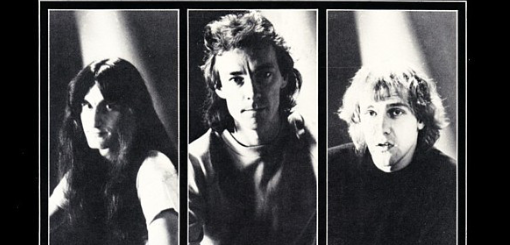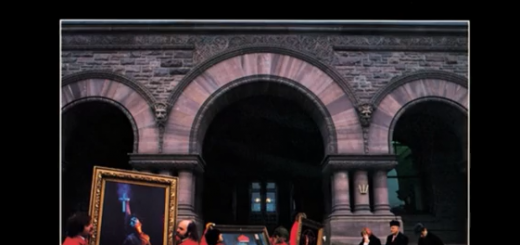The Trees by Rush Lyrics Meaning – Unearthing the Allegorical Roots of Sociopolitical Commentary
Lyrics
There is trouble with the trees
For the maples want more sunlight
And the oaks ignore their pleas
The trouble with the maples
And they’re quite convinced they’re right
They say the oaks are just too lofty
And they grab up all the light
But the oaks can’t help their feelings
If they like the way they’re made
And they wonder why the maples
Can’t be happy in their shade
There is trouble in the forest
And the creatures all have fled
As the maples scream, “Oppression”
And the oaks just shake their heads
So the maples formed a union
And demanded equal rights
“The oaks are just too greedy
We will make them give us light”
Now there’s no more oak oppression
For they passed a noble law
And the trees are all kept equal
By hatchet, axe, and saw
Beneath the verdant facade of Rush’s 1978 track ‘The Trees,’ lies a rich vein of metaphor laden with political undertones and social commentary. Rush, the Canadian trio well-known for their intellectual lyricism, intricately intertwines the worlds of nature and humanity to render a riveting rock parable that examines the inherent complexities of equality and conflict.
This song, penned by drummer Neil Peart, is often perceived as a simple fable, but a deeper exploration reveals a nuanced reflection on societal structures and the often paradoxical quest for justice and fairness. Through the imagery of maples and oaks vying for sunlight in the forest, ‘The Trees’ plants the seeds for a discussion on the character of liberty, competition, and the repercussions of forced uniformity.
An Arboreal Allegory of Class Struggle
At first listen, ‘The Trees’ could be mistaken for a child’s tale, a storybook fable set among the characters of the forest. However, the simmering tension between the deciduous denizens unveils a stark representation of social classes and their eternal strife. The maples, with their cries for more sunlight, echo the marginalized voices seeking to share the ‘light’ of prosperity monopolized by the ‘lofty’ oaks—reminiscent of the elite or the ruling class.
Peart’s lyrical choice to personify trees as agents of social change and class warfare offers an arresting perspective on the human condition. Rather than a literal environmental concern, the plight of the trees serves as a symbolic stage upon which Rush paints a picture of inequity that is as relevant in today’s society as it was over four decades ago.
Whispers in the Woodlands: The Song’s Hidden Meaning
Delving into ‘The Trees,’ its hidden meaning emerges as a cautionary tale of good intentions gone awry. As the maples’ desire for equality turns into a demand for homogenization, Rush investigates the delicate balance between societal equality and individual distinction. This narrative transforms the gentle whispers of leaves into a roar for reflection on the very essence of egalitarianism.
The song subtly criticizes the fallout from legislative overreach when it concludes, melancholically, that all trees are kept equal ‘By hatchet, axe, and saw.’ Rather than achieving natural harmony, the maples’ quest for sunlight leads to a forced, synthetic equality – an eerie reminder that the pendulum of justice can swing into the realm of tyranny if left unchecked.
A Symphony of Shifting Perspectives: Maples vs. Oaks
The narrative propulsion in ‘The Trees’ is facilitated by the shifting perspectives of maples and oaks. By presenting both sides of the arboreal argument, Rush encourages listeners to engage in a more diverse and empathetic view of conflict. The track doesn’t champion one cause over another; rather it’s the lens through which the story is viewed that shifts and broadens.
This technique allows listeners to ruminate on the legitimacy of each side’s claim, illuminating the multitude of shades found in the forest of social justice. It probes the question of whether absolute equality is achievable – or even desirable – when it comes to the disparities etched into the fundamental nature of beings, wooden or otherwise.
Shade and Sunlight: The Struggle for Balance in ‘The Trees’
The song’s tension revolves around a simple, yet profound Environmental struggle: the need for sunlight. Sunlight in this ballad transcends its literal meaning, becoming a powerful metaphor for opportunity and growth. The maples’ plea for equal rights to sunlight taps into the intrinsic human yearning for a share in the ‘light’ of prosperity, respect, and dignity.
Rush touches upon a primal notion of fairness, one that extends beyond the maples’ specific grievance, and speaks to a universal question of resource distribution. It further reflects upon how conflict arises not necessarily from the mere existence of differences, but from the perceived scarcity of essential resources that could and should benefit all.
Memorable Verses: The Echoing Call for Light and Equality
Lines like ‘The maples scream ‘Oppression!” and ‘We will make them give us light’ powerfully encapsulate the maples’ grievances and determination. These verses resonate dramatically with the human struggles for equality throughout history, encapsulating the timeless tension between the haves and the have-nots, and the enduring pursuit of a fair share.
Similarly poignant, the oaks’ response – or lack thereof – ‘And the oaks just shake their heads,’ exudes a melancholic acceptance, reflecting the underlying fatalism that often accompanies entrenched disparities. These memorable lines make ‘The Trees’ not just a song, but a resonant echo chamber for society’s persistent debates on rights, responsibilities, and the redistribution of wealth and power.








